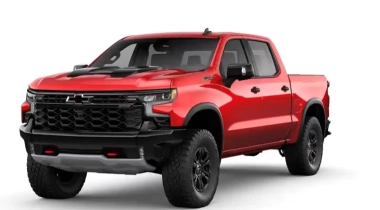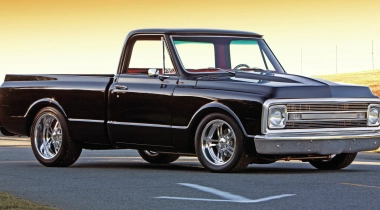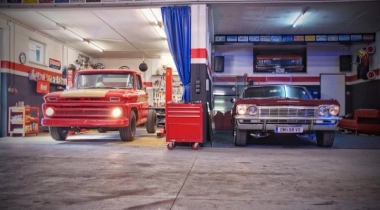10 Essential Maintenance Tips for Keeping Your Chevy 67-72 Truck Running Smoothly

Keep Your Chevy 67-72 Truck in Pristine Condition with These Top 10 Maintenance Tips
Owning a Chevy 67-72 truck is a matter of pride for many vintage vehicle enthusiasts.
However, these classic trucks require regular maintenance to keep them running smoothly and preserve their value.
By following some simple maintenance tips, you can ensure that your Chevy truck remains in top condition and delivers the performance you expect.
In this article, we will discuss 10 essential maintenance tips for keeping your Chevy 67-72 truck running smoothly. If you’re looking to completely restore your chevy 67-72 , then check our complete Step-by-Step guide for restoring a chevy 67-72 truck.
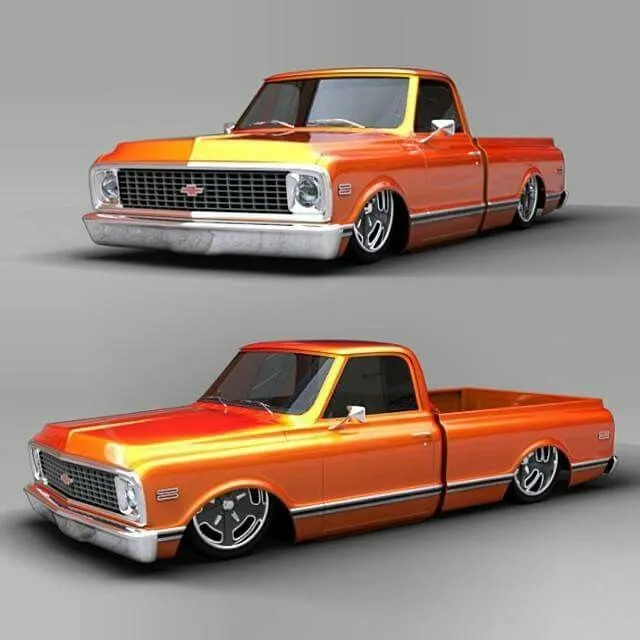
Range of Chevy 67-72 Trucks
The Chevy 67-72 model range includes several popular truck models, including the C10, K10, C20, K20, C30, and K30. These trucks are known for their durability and classic design, making them a favorite among vintage truck enthusiasts.
The C10 and K10 models are half-ton pickups, while the C20 and K20 models are three-quarter ton pickups. The C30 and K30 models are one-ton pickups, and they are often used for heavy-duty work such as towing and hauling.
No matter which model you have, regular maintenance is key to keeping your Chevy 67-72 truck running smoothly. Here we come up with Chevy 67-72 maintenance tips.
Maximize the Lifespan of Your Chevy 67-72 Truck: 10 Essential Maintenance Tips
1.Regularly Change Oil and Oil Filter
One of the most important maintenance tasks for any vehicle is changing the oil and oil filter regularly.
This is especially true for vintage trucks like the Chevy 67-72 models.
Regular oil changes help to keep the engine running smoothly and prevent costly repairs down the road. It’s recommended to change the oil and oil filter every 3,000 miles or every three months, whichever comes first.
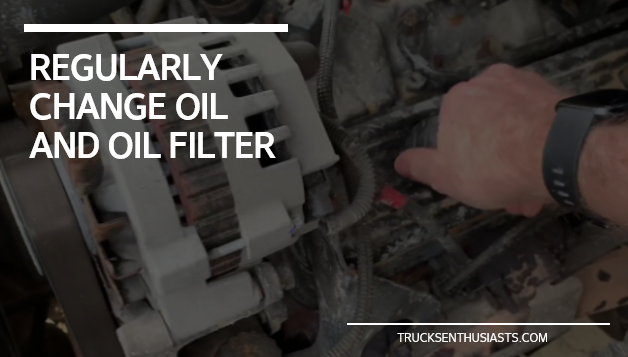
This is more specific and crucial if you own a Vintage Chevy Truck. As per our recommendations , you can use Purolater Advanced Oil Filter or K&N Premium Filter with any good oil or get Mobil 1 Full Synthetic motor oil for good results.
FAQs : Changing Oil and Oil filter for Chevy 67-72 Trucks
Q: How often should I change the oil in my Chevy 67-72 truck?
Ans: It is recommended to change the oil in your vintage Chevy truck every 3,000 miles or every 3 months, whichever comes first.
Q: Do I need to change the oil filter every time I change the oil?
Ans: Yes, it is recommended to change the oil filter every time you change the oil in your vintage Chevy truck. This ensures that the oil filter is able to effectively trap contaminants and debris from the oil, keeping your engine running smoothly.
Q: Can I use any type of oil in my Chevy 67-72 truck?
Ans: It is recommended to use the oil type and viscosity recommended by the manufacturer in your vintage Chevy truck. Refer to the owner’s manual or consult with a trusted mechanic to determine the appropriate oil type for your specific model.
Q: What are the consequences of not changing the oil and oil filter regularly?
Ans: Failing to change the oil and oil filter regularly can lead to a buildup of contaminants and debris in the engine, which can cause engine damage and reduce performance. It can also result in decreased fuel efficiency and higher emissions, which can impact the environment and your wallet.
Q: Can I change the oil and oil filter myself, or should I take it to a professional mechanic?
Ans: If you have experience and knowledge in performing basic automotive maintenance tasks, you can change the oil and oil filter yourself. However, if you are unsure or uncomfortable with performing this task, it is recommended to take your vintage Chevy truck to a professional mechanic who has the tools and expertise to perform the job correctly.
2. Keep the Cooling System in Good Condition
The cooling system of your Chevy 67-72 truck is responsible for keeping the engine from overheating.
It’s important to keep the cooling system in good condition to prevent any damage to the engine. Regularly check the coolant level and top up as needed.
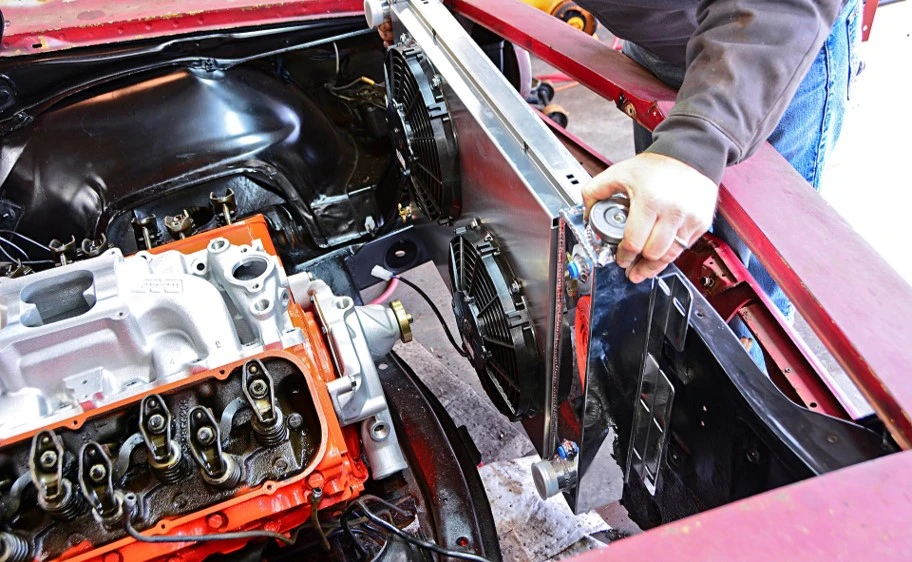
Also, make sure to replace the coolant every two years to prevent any build-up of contaminants.
FAQS Regarding Colling system for Chevy 67-72 Trucks
Q: How often should I replace the coolant in my Chevy C10 or K10 vintage truck?
Ans: It is recommended to replace the coolant in your Chevy C10 or K10 every two to three years, or according to the manufacturer’s recommendations.
Q: How can I tell if my Chevy C10 or K10 is overheating?
Ans: If your temperature gauge reads higher than normal, you may have an overheating issue. Other signs include steam coming from the hood or a strong smell of coolant. If you don’t have temperature gauge or any other meter you can check this AUTO METER Complete 6 Dash guage dash kit specially designed for Chevy 67-72 models to track important engine vitals.
Q: What should I do if my Chevy Vintage starts to overheat?
Ans: If your truck starts to overheat, pull over to a safe location and turn off the engine. Allow the engine to cool down before attempting to check the coolant level.
If the coolant level is low, add coolant as needed. It is also a good idea to have your cooling system inspected by a professional to determine the cause of the overheating.
Q: Can I use any type of coolant in my Chevy C10 or 67-72 models ?
Ans: It is important to use the type of coolant recommended by the manufacturer for your specific truck model. Mixing different types of coolant can cause damage to the cooling system.
You can choose from Prestone Antifreeze or Peak OET Antifreeze for better results.
Q: How can I prevent cooling system issues in my Chevy C10 or K10?
Ans: Regular maintenance, including checking and replacing the coolant as needed, is the best way to prevent cooling system issues in your Chevy C10 or K10.
It is also important to have your cooling system inspected by a professional mechanic on a regular basis.
3. Maintain Proper Tire Pressure
Proper tire pressure is essential for a smooth ride and safe driving.
Check your Chevy 67-72 truck’s tire pressure regularly and maintain it within the recommended range. Improper tire pressure can lead to poor fuel economy, reduced handling, and even tire failure.
The recommened tire pressure for these vintage trucks can range from 30 to 45 PSI. It’s important to maintain proper tire pressure for optimal performance, fuel efficiency, and to prevent premature tire wear. It’s also recommended to check the tire pressure regularly, especially before long trips or when carrying heavy loads.
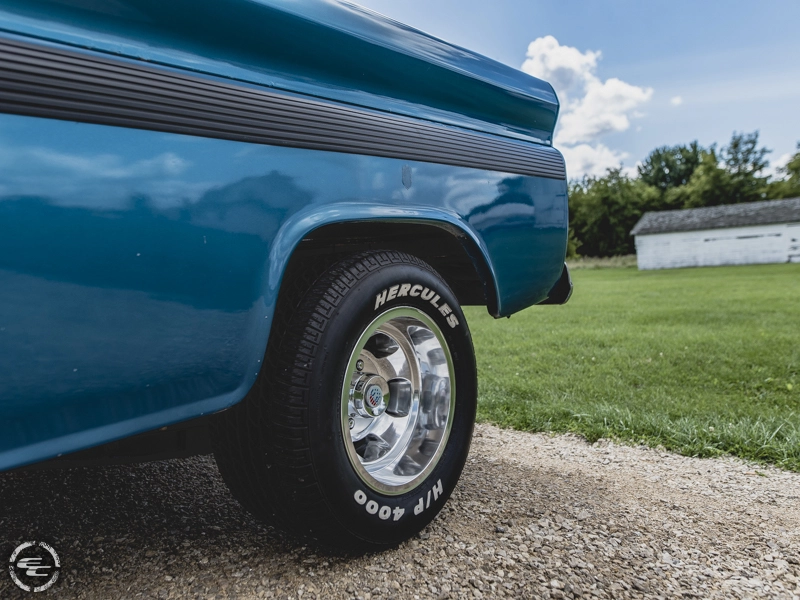
FAQs regarding Checking of Tire Pressure
Q.How often should I check the tire pressure in my Chevy 67-72 vintage truck?
Ans.It’s recommended to check the tire pressure at least once a month, or before long trips or when carrying heavy loads.
Q. How do I check the tire pressure in my Chevy 67-72 vintage truck?
Ans.To check the tire pressure, remove the valve cap and use a tire pressure gauge to measure the pressure. The recommended pressure can be found in the owner’s manual or on the tire information placard located on the driver’s side door jamb.
Q.How do I adjust the tire pressure in my Chevy 67-72 vintage truck?
Ans.To adjust the tire pressure, use an air compressor or air pump to add or release air from the tires. It’s important to add or release air in small increments and re-check the pressure until the recommended pressure is reached.
Q. Can extreme temperatures affect tire pressure in my Chevy 67-72 vintage truck?
Ans.Yes, extreme temperatures can cause fluctuations in tire pressure. In cold temperatures, tire pressure can drop, and in hot temperatures, tire pressure can increase. It’s important to check tire pressure regularly and adjust as necessary.
4. Check the Brakes
The brakes are one of the most critical safety features of your Chevy 67-72 truck. Make sure to regularly inspect the brake system for any signs of wear or damage.
Replace brake pads, rotors, or drums as needed and have the brake fluid flushed every two years. If you want to upgrade whole braking system then choose no other option then NEW Wildwood Front and Rear Braking kit for Chevy 63-70 Vintage Truck models.

FAQs about Checking the Brakes in Chevy 67-72 Trucks
Q.How often should I check my brake system in my Chevy 67-72 truck?
Ans.It is recommended to check the brake system of your Chevy truck regularly, at least once every 6 months or 6,000 miles, whichever comes first.
Q.How can I tell if my brake pads are worn out?
Ans.You can tell if your brake pads are worn out by observing some signs, such as a squeaking or grinding noise when you apply the brakes, a vibration or pulsation in the brake pedal, or a longer stopping distance.
Check the thickness of the brake pads. If they are less than 1/4 inch thick, they should be replaced. Also, check for uneven wear on the pads, which could indicate a problem with the calipers or rotors.
Q. How do I maintain my brake system?
Ans. To maintain your brake system, you should keep the brake fluid level at the appropriate level, inspect the brake lines and hoses for any signs of leaks or wear, and have your brakes checked and serviced regularly by a qualified mechanic.
Q. How often should I replace my brake pads?
Ans. It depends on your driving habits and the type of brake pads you are using. Generally, brake pads should be replaced every 30,000 to 70,000 miles.
Q. How can I tell if my brake rotors are damaged?
Ans. You can tell if your brake rotors are damaged by observing some signs, such as a vibration or pulsation in the brake pedal, a wobbling or shaking sensation when you apply the brakes, or uneven wear on the brake pads.
Check the condition of the rotors. If they are worn or warped, they should be replaced. Rotors that are glazed or have hot spots can cause brake pulsations or noise.
Q. How do I maintain my brake fluid?
Ans.To maintain your brake fluid, you should check the fluid level regularly and top it off as needed, replace the brake fluid every 2 years or 30,000 miles, and avoid mixing different types of brake fluid. You can use Prestone DOT 3 Synthetic Brake fluid , one of the best brake fluid even for vintage vehicles.
Q, Can I replace my own brake pads?
Ans.While it is possible to replace your own brake pads, it is recommended to have them replaced by a qualified mechanic to ensure that the job is done correctly and safely.
5. Keep the Battery in Good Condition
The battery is responsible for powering all the electrical components of your Chevy 67-72 truck.
It’s important to keep the battery in good condition to prevent any electrical issues. Regularly check the battery terminals for corrosion and clean as needed.
Also, make sure to replace the battery every four to five years.
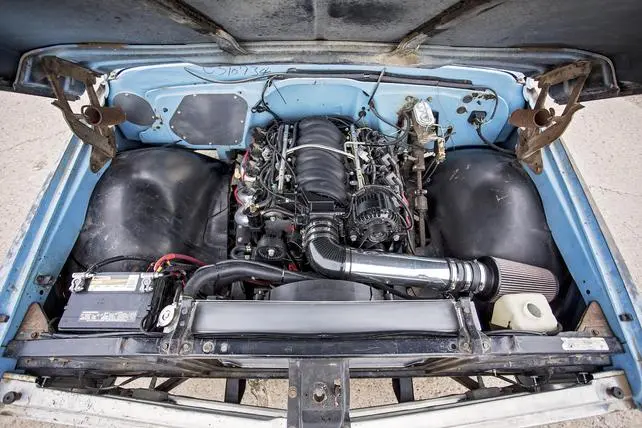
There are many good battery options available for the Chevy C10 truck. Here are some popular choices: Optima Batteries 8022-091 75/25 RedTop Starting Battery (high Cranking power) , Odyssey PC1200MJT Automotive and LTV Battery (high cold cranking amps and deep cycle capabilities) or ACDelco 48AGM Professional AGM Automotive BCI Group 48 Battery (For extra electrical demand).
FAQs about Keeping Battery in good condition
Q.How often should I check my Chevy truck’s battery?
Ans. It is recommended to check the battery at least once a month, especially in hot or cold weather conditions.
Q. What is the average lifespan of a battery in a vintage Chevy truck?
Ans. The lifespan of a battery can vary depending on factors such as usage, maintenance, and climate. However, a well-maintained battery can last around 3-5 years.
Q. How can I tell if my Chevy truck’s battery is dying?
Ans. Some signs of a dying battery include difficulty starting the engine, dimming headlights, and a clicking sound when turning the key.
Q. How can I maintain my Chevy truck’s battery?
Ans. Regularly checking the battery’s voltage and electrolyte level, keeping the terminals clean and tight, and avoiding deep discharges can help maintain the battery’s health.
Q. Can I jump-start my Chevy truck’s battery with another vehicle?
Ans. Yes, you can jump-start your truck’s battery with another vehicle, but it is important to follow the correct safety procedures and avoid damaging the electrical system.
Q. Should I replace my Chevy truck’s battery if it fails a load test?
Ans. If the battery fails a load test, it may indicate that it is no longer able to hold a charge effectively and should be replaced to prevent further issues.
Q. What are some points to consider when changing Chevy 67-72 trucks battery?
Ans. When changing the battery in an old Chevy vintage truck, here are some good options to consider:
- Opt for a high-quality battery that is compatible with your truck’s make and model.
- Choose a battery with a higher CCA (cold cranking amps) rating to ensure better performance during cold weather.
- Consider a maintenance-free battery to avoid the hassle of regularly checking and adding water.
- If your truck is equipped with accessories that require more power, such as a powerful sound system or off-road lighting, consider upgrading to a higher-capacity battery.
- Install a battery tender or trickle charger to keep the battery charged when the truck is not in use for extended periods of time.
6.Inspect the Suspension System
The suspension system of your Chevy 67-72 truck is responsible for providing a smooth ride and handling.
Regularly inspect the suspension system for any signs of wear or damage Replace any worn-out parts and have the alignment checked if necessary.
If you find out any worn or damanged suspension part that could be shocks, struts , ball joint or any other – kindly repair it or get it changed as soon as possible. You can also check Airmaxxx suspension kit for Chevy 67-72 Truck models to make your truck new and ready for off-road advernture again!
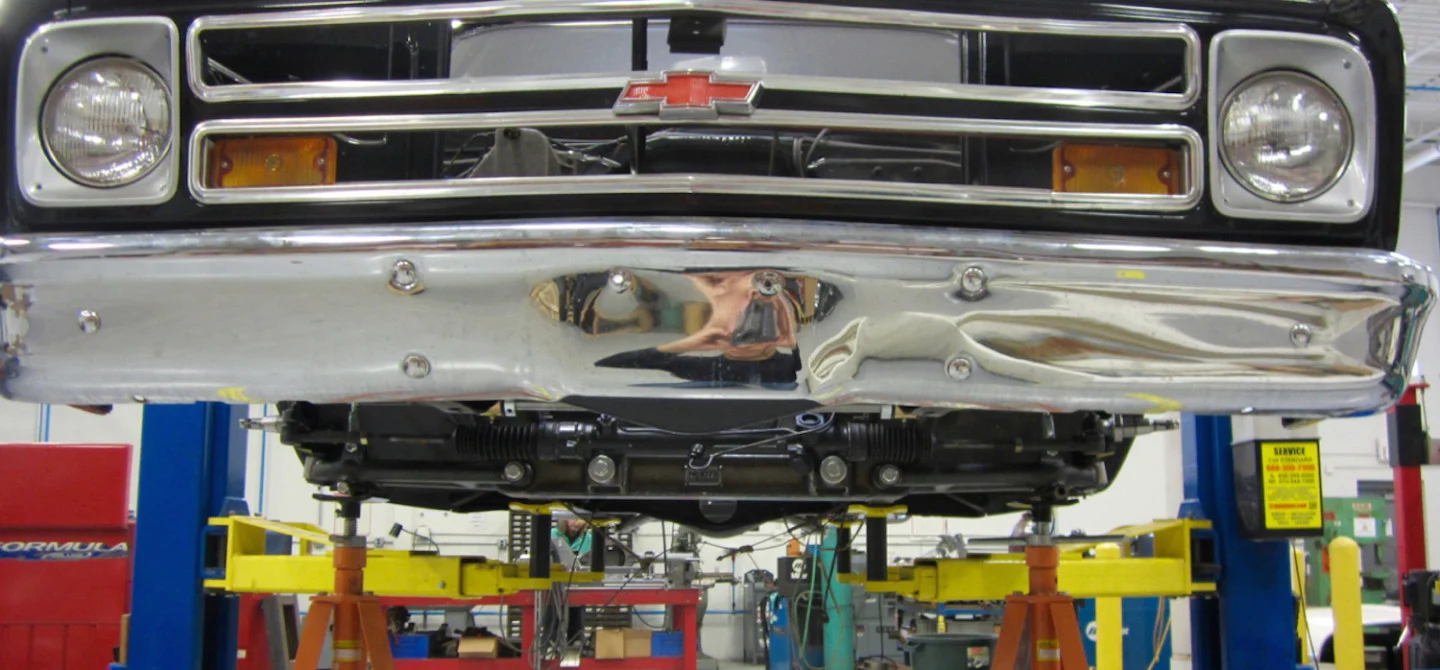
FAQs regarding inspecting suspesnion system in Chevy 67-72 Trucks
Q: How often should I inspect the suspension system in my Chevy 67-72 truck?
Ans: It is recommended to inspect the suspension system of your Chevy 67-72 truck at least once a year or every 12,000 miles, whichever comes first.
Q: What are some signs that my suspension system needs inspection or maintenance?
Ans: Some signs that your suspension system may need inspection or maintenance include a bumpy or rough ride, excessive vibration or noise while driving, uneven tire wear, and pulling to one side while driving.
Q: What components of the suspension system should I inspect?
Ans: The components of the suspension system that should be inspected include the shocks, struts, springs, ball joints, tie rods, and control arms.
Q: Can I inspect the suspension system myself or should I take it to a professional mechanic?
Ans: While some simple inspections can be done by yourself, it is recommended to take your Chevy 67-72 truck to a professional mechanic for a thorough inspection and any necessary maintenance or repairs.
Q: What are some common maintenance tasks for the suspension system?
Ans: Common maintenance tasks for the suspension system include replacing worn or damaged shocks, struts, or springs, lubricating the ball joints and tie rods, and aligning the wheels.
If you’re having worn or damaged shocks and try to change it with Bilstein Front and Rear shocks to see change instantly.
Q. How much does it typically cost to repair or replace the suspension system in a Chevy C10 or K10 truck?
Ans. The cost of repairing or replacing the suspension system in a Chevy C10 or K10 truck can vary depending on the extent of the damage and the parts that need to be replaced.
On average, the cost can range from $500 to $1500 or more. It’s important to have your suspension system inspected regularly to catch any issues early on and avoid more costly repairs down the line.
7.Keep the Air Filter Clean
The air filter is responsible for preventing dirt and debris from entering the engine.
It’s essential to keep the air filter clean to ensure proper engine performance. Replace the air filter every 12,000 miles or once a year.
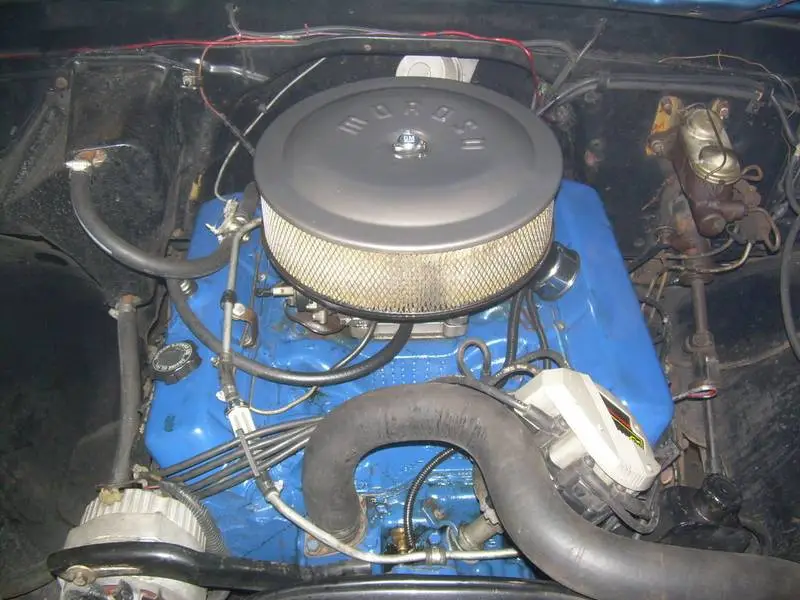
FAQs Regarding keeping the Air filter clean:
Q: How often should I replace the air filter in my Chevy C10 or K10 truck?
Ans: It is recommended to replace the air filter in your Chevy C10 or K10 truck every 12,000 to 15,000 miles or once a year, whichever comes first. However, if you frequently drive in dusty or dirty environments, you may need to replace it more often.
Q: How can I tell if my Chevy C10 or K10 truck’s air filter needs to be replaced?
Ans: There are a few signs that indicate a dirty air filter in your Chevy C10 or K10 truck, including reduced engine power, decreased fuel efficiency, and black smoke coming from the exhaust. Additionally, you can visually inspect the air filter and replace it if it appears dirty or clogged.
Q: Can I clean and reuse my Chevy C10 or K10 truck’s air filter?
Ans: It is possible to clean and reuse some air filters, but this depends on the type of filter and its condition. Some filters can be cleaned with compressed air or washed with water and allowed to dry before being reused.
However, if the filter is severely clogged or damaged, it should be replaced with a new one.
8.Maintain Proper Fluid Levels
Your Chevy 67-72 truck requires several fluids to operate correctly, including engine oil, transmission fluid, brake fluid, and coolant.
It’s important to regularly check and maintain the proper fluid levels to prevent any damage to the engine or other components.

FAQs Regarding Maintaining proper fluid levels in Chevy 67-72 trucks
Q: How often should I check the fluid levels in my Chevy 67-72 truck?
Ans: It’s recommended to check the fluid levels in your Chevy truck every 3 months or every 3,000 miles, whichever comes first.
Q: What fluids should I regularly check in my Chevy 67-72 truck?
Ans: The fluids you should regularly check in your Chevy truck include engine oil, transmission fluid, brake fluid, power steering fluid, and coolant.
Some of the best fluids that can choose:
- Best Engine Oil Options : Shell Rotella Synthetic Engine Oil or Valvoline Advanced Synthetic Engine oil
- Best Transmission fluid : ACDelco GM Original Transmission fluid
- Best Brake Fluid : Prestone DOT 3 Synthetic Brake fluid
- Best power steering fluid : Prestone AS262 Power Steering Fluid
- Best Coolant: Prestone Antifreeze or Peak OET Antifreeze
Q: What should I do if I notice low fluid levels in my Chevy truck?
Ans: If you notice low fluid levels in your Chevy truck, you should add the appropriate fluid to bring it to the recommended level. If you notice a significant drop in fluid levels, it may indicate a leak and you should have your truck inspected by a mechanic.
9.Regularly Inspect the Belts and Hoses
The belts and hoses in your Chevy 67-72 truck are responsible for powering many of the engine’s components. Regularly inspect the belts and hoses for any signs of wear or damage. This is one the best maintenance tips to keep your Chevy 67-72 truck run for lifetime.
Replace any worn-out or damaged parts to prevent any issues down the road.
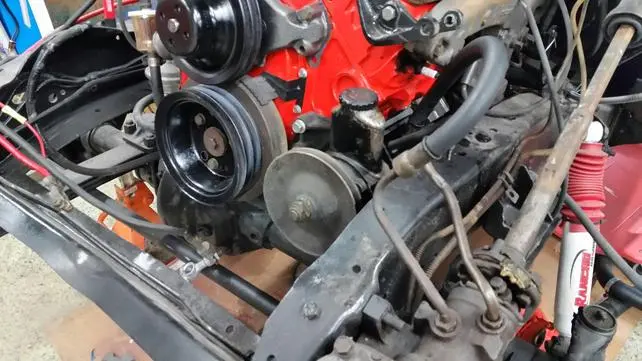
FAQS regarding Regularly inspecting Belts and Hoses for Chevy 67-72 trucks
Q: How often should I inspect the belts and hoses in my Chevy vintage truck?
Ans: It’s recommended to inspect the belts and hoses at least once a year or every 12,000 miles, whichever comes first.
Q: How can I tell if my belts or hoses need to be replaced?
Ans: Signs of wear or damage include cracks, fraying, and leaks. If you notice any of these signs, it’s recommended to replace the belt or hose as soon as possible.
Q: Can I replace the belts and hoses myself?
Ans: It’s possible to replace the belts and hoses yourself, but it’s recommended to have a professional mechanic do the job to ensure it’s done correctly.
Q: What types of belts and hoses are recommended for Chevy vintage trucks?
Ans: It’s recommended to use OEM (original equipment manufacturer) belts and hoses for your Chevy vintage truck, as they are designed to fit and function properly with your specific vehicle model.
Q: What are some common causes of belt and hose wear and damage?
Ans: Some common causes include exposure to high temperatures, age, and exposure to chemicals such as oil or coolant. It’s important to regularly inspect and maintain your belts and hoses to prevent damage and avoid costly repairs.
10. Store Your Truck Properly (Best Chevy 67-72 maintenance tips)
If you plan to store your Chevy 67-72 truck for an extended period, it’s essential to prepare it properly. Clean the truck thoroughly and store it in a dry, cool, and dark place.
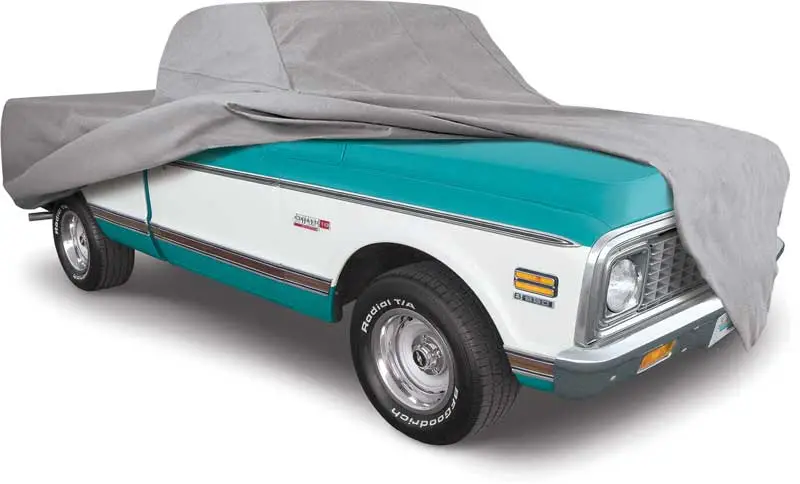
Covering your truck with a high-quality car cover can help protect it from dust, debris, and other damage while it’s in storage.
Also, disconnect the battery and place a cover over the truck to prevent any damage from dust or debris.
Conclusion for Chevy 67-72 maintenance tips
Regular maintenance is key to keeping your Chevy 67-72 truck running smoothly and maintaining its value.
By following these essential Chevy 67-72 maintenance tips, you can ensure that your vintage truck remains in top condition and delivers the performance you expect.
From checking the oil level and tire pressure to inspecting the brakes and replacing worn-out parts, these tips will help you keep your Chevy truck in peak condition for years to come.
Remember, taking good care of your vintage vehicle is not only important for its performance but also for preserving its historic value.

Vicky Dwaj, Founder and CEO of TrucksEnthusiasts , is an automobile engineer passionate about pickup trucks and accessories. Follow his journey to discover the latest trends in off-road accessories, cars, and truck parts.



